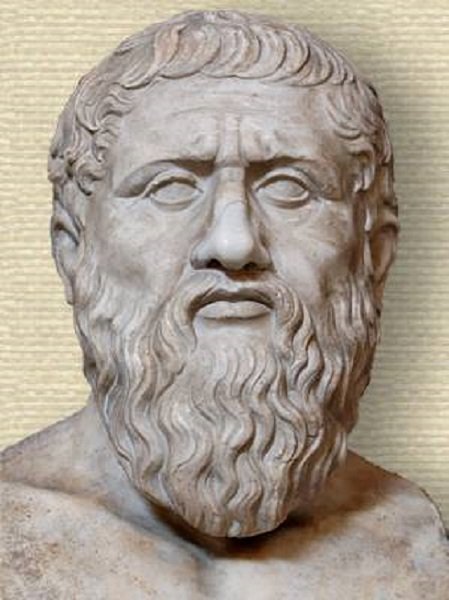Life and activity of Plato / last part/
As a result of research into the content, style, and language of the individual dialogues, they are ultimately grouped into three main groups: The first group of the so-called Socratic, Early Dialogues are: "Ion", which is Plato's first work, and is a discussion of Socrates with the Rhapsody Ion on the importance, qualities and responsibility of the Rhapsodies: "Apocology of Socrates", which are devoted to the protection of Socrates against his accusers and judges:" Lahes "," Harmid "and" Ephtiphron ", which are designed to clarify the main virtues in the spirit of Socrates -" Laheses "deals with courage, "- with prudence or abstinence, but" Ephtiphron " with true piety.
A sharp controversy over the sophists is another three dialogues in this group: "Protagor", which examines their gnostic teachings. "Hippie Young," which emphasizes the importance of consciousness in actions, and "Gorgi", in which the moral teachings of the Sophists, especially the morality of the strong, brutal, and tyrannical one, supported by some of them. They are still in the same group, but are written later: "Menexen", which is a factual debate about the merit of the dignified fallen for the homeland, Menon - the length of the debates from earlier dialogues on virtue, Evtimed, an acute controversy over Antisthene and his school, and Krathyl, dedicated to the question of the essence, origin and meaning of language. The last composition of this group is "Ketofon". The second period covers the largest and truly mature, profound philosophical essays.
a / "Fedon" - exposes the last days of Socrates' life. It examines the question of the immortality of the human soul.
b) "Feder" - is looking at the issue of beauty. Here is the famous comparison of the human soul as a chariot with two horses, one flying up and the other falling down.
c) "State" - considers the issue of the nature, structure, management and importance of the state.
This is also the case for smaller dialogues:
a / Parmenides, in which the teachings of ideas, largely characterized as similar to the unparalleled, indestructible and enduring Being of Parmenides, are exposed in the initial form;
b/ "Sophist" - here, in contrast to the Sophistic doctrine, which took account of everything in a relative and relative way, Plato exposes his teaching to ideas as an eternal, invariable being.
c / Politics - states what the qualities of the political man, the state, must be.
As the third age of Plato's activity, the dialogues include:
a / Teethe - examines the doctrine of knowledge, criticizing first of all the sophisticated gnosiology.
b/ "Timaeus" - here are the natural-scientific views of Plato and, to a great extent, his teaching about religion.
c / Fileb - examines the problem of the ultimate goal of life: whether it is the delight or the acquisition of knowledge. He says that truly happy is the life in which both are achieved: delight and knowledge.
d/ The most voluminous work, but at least internally agreed is "Laws". It was issued only after Plato's death. It examines the question of the origin, the qualities and the importance of the laws. It also addresses the issue of the state form and the upbringing that citizens must receive.
Not to mention all his writings written to Plato, it is worth mentioning his letters that have come to us. They are all thirteen in number. Most were challenged, but many researchers are considered authentic.

You got a 12.15% upvote from @booster courtesy of @godflesh!
NEW FEATURE:
You can earn a passive income from our service by delegating your stake in SteemPower to @booster. We'll be sharing 100% Liquid tokens automatically between all our delegators every time a wallet has accumulated 1K STEEM or SBD.
Quick Delegation: 1000| 2500 | 5000 | 10000 | 20000 | 50000